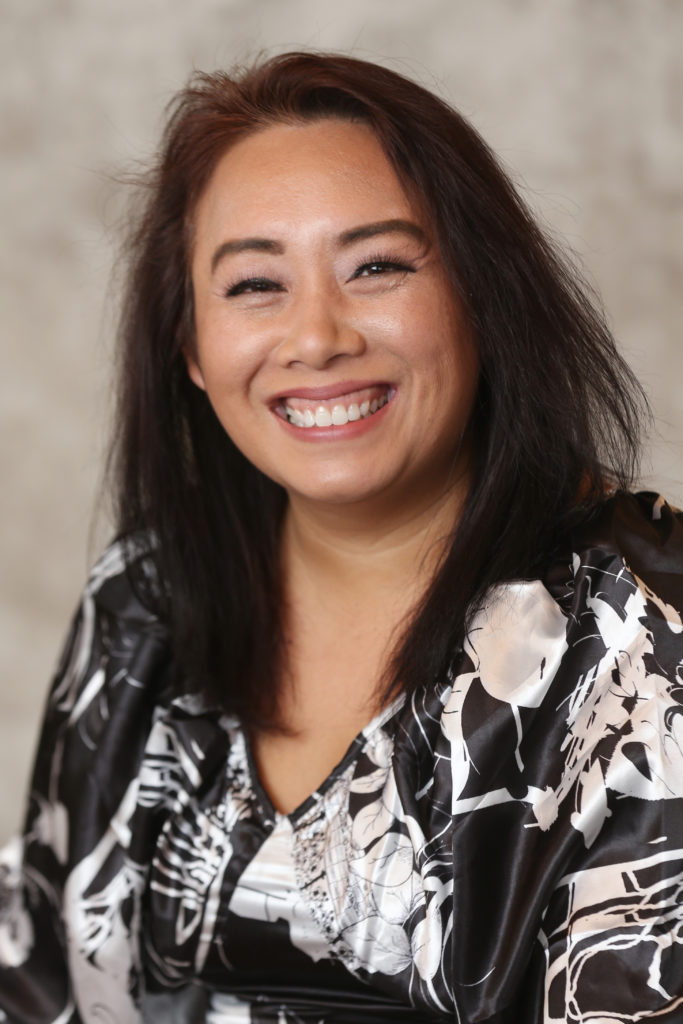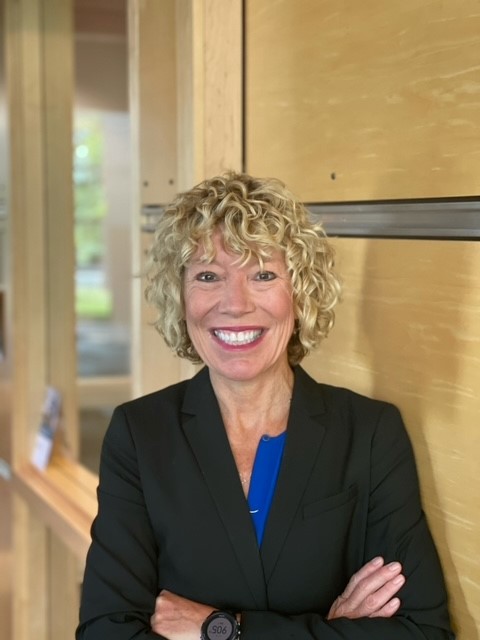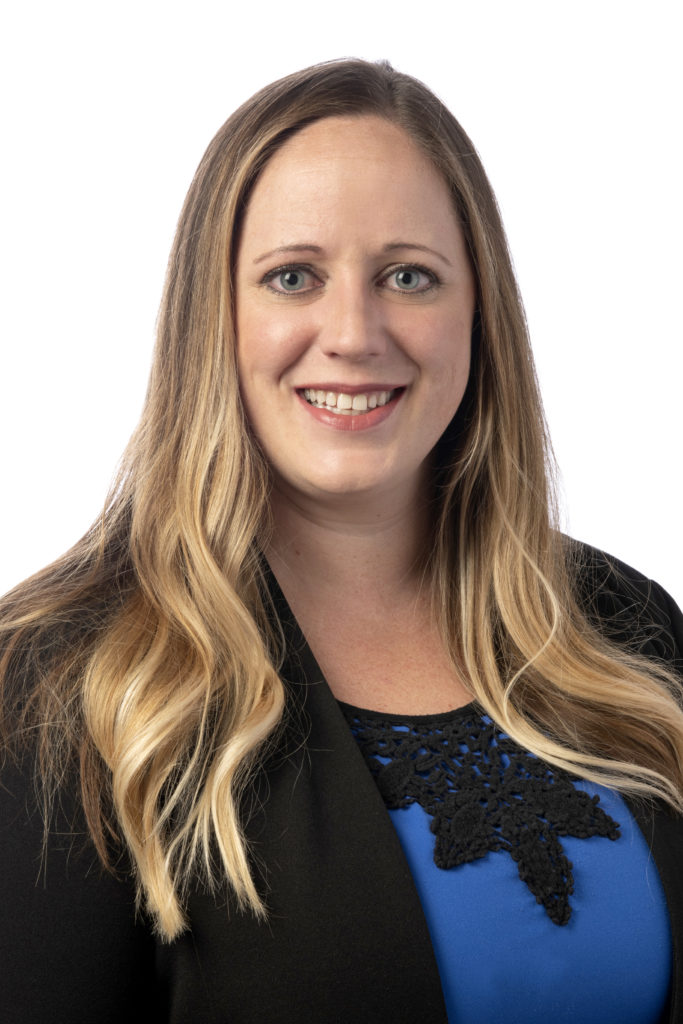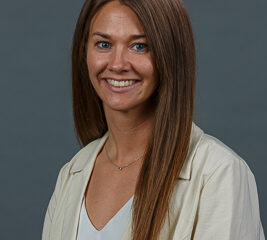By Emily Kestel

Despite controlling a sizable chunk of the wealth in the United States and often serving as primary financial decision-makers in households, women face many systemic and personal barriers when it comes to financial empowerment.
For starters, there’s a knowledge and confidence gap when it comes to financial education in women.
Then you factor in the gender pay gap. Recent analysis from the Institute for Women’s Policy Research shows that when looking at median weekly earnings, Hispanic women earn 59%, Black women earn 64%, white women earn 80% and Asian women earn 95% of white, non-Hispanic men’s earnings. In Iowa, women on average earn 76 cents for every dollar a man earns.
Then you realize that women hold two-thirds of U.S. student loan debt and take longer to repay it than their male counterparts in part due to the aforementioned pay gap.
And if that’s not enough, you remember the notion of the motherhood penalty, where those who choose to have children often see pay cuts during a time of peak earning age.
All of the above means it’s all the more important for women to educate themselves on their personal finances.
We reached out to several women who work as wealth and financial advisers to hear their perspectives and gather tips. Here’s who submitted responses:
- Lisa Ung, a licensed agent and owner of Ung Financial Services in Des Moines.
- Heidi Parkhurst, a wealth adviser with Merill Lynch Wealth Management in the Quad Cities and the president of Bank America Iowa. She was featured as one of the best women wealth advisers in the state by Forbes.
- Kristen Mott, an associate wealth adviser at Private Wealth Asset Management in West Des Moines.
Responses have been edited and condensed for clarity.

Lisa Ung 
Heidi Parkhurst 
Kristen Mott
Why should women care about their finances?
Ung: Statistically, women tend to live longer than our spouses. We are our parents’ caregivers and the “go-to” person when the issue arises. We need to learn how to budget, prioritize, save for our retirement, protect ourselves and our families. Without understanding our financial situation, we may be setting ourselves up for failure.
Parkhurst: Financial independence is a fundamental step in establishing long-term professional and personal success. A solid financial footing is essential for women of all backgrounds and circumstances; whether their goals include saving for college, establishing the credentials to purchase a first home, or supporting a family. Women will be better prepared for their future and equipped to face challenges if they have a greater understanding of finances and access to resources that will allow them to generate wealth.
Mott: Every person, woman or man, young or old, should intimately care about their finances because they matter more to you than anyone else. While not the only variable, your finances will very likely have a direct impact on your ability to accomplish many of your goals and dreams.
What barriers or challenges do women face in terms of financial health or wealth management?
Parkhurst: Often, women take on many important roles in family life. Caregiving is certainly no exception, where the majority of family caregivers are women and are 49 years of age, on average. This may include caring for children, an aging parent or any number of factors that lead to women taking on additional responsibilities to support others. Of course, such responsibilities can not only be a sacrifice of time, but also money. An unforeseen medical expense from a loved one, fees associated with children’s education, or any other countless scenarios can lead to financial obligations that may hinder personal financial goals. While some of these situations are unavoidable, it’s important to remember that keeping a steady financial routine benefits the family as a whole.
Ung: There seems to be this misconception that men should be the money holder in the family – as if when it comes to money, we are not as smart as the men or as savvy as them. As an Asian-American woman working in the financial industry, it seems like people are comfortable coming to me to get health insurance advice, but when it’s financial advice, they prefer to go to a man. I can’t tell if it’s because I am a woman or because I am Asian. But I think it’s the perception that men know more.
Mott: It is so essential for a woman to be able to voice not only what is important to her, but also her concerns and worries. Trusted financial advisers come with diverse backgrounds, strengths, areas of expertise and characteristics. If a woman ever feels as though she is not being heard or seen, I would strongly recommend finding an adviser that is a better fit. Understand that, like any relationship, it does take time to build rapport and trust, but it is so critical to be able to convey what is most important in order to get customized and relevant advice and support.
How can parents or caregivers teach others about financial literacy (and what’s the importance of doing so?)
Mott: It is important to begin teaching financial literacy at an early age. Unfortunately, our education system does not give finance the emphasis it deserves. I have seen so many instances where young adults are sent off to college, or begin their careers, and do not have a solid base knowledge about how to manage their money. As one could imagine, without the proper foundation and education, this can lead to detrimental impacts on an individual’s credit scores and financial future. Financial literacy can be taught via many different methods. My recommendation to parents or caregivers is to get those you are teaching directly involved as much as possible. To really grasp the pertinent skills and attention required, money management needs to be hands-on. Help set those individuals up with a checking and/or savings account and a debit card to give them firsthand experience to fully grasp the importance. Start slow, with smaller dollar amounts and lower limits, to teach the importance of tracking, budgeting and recordkeeping. Also, consider starting accounts with a responsible joint account holder to help monitor and provide regular oversight and support. Gradually move toward individually owned accounts once a solid foundation is built and responsibility is proven. Also deserving of time, explanation and coaching is the importance of building a strong, cohesive credit history. An individual’s credit score can propel or quickly halt financial transactions in the future and is so essential for financial success.
Ung: My family immigrated here from Laos. At the beginning, they both worked very hard. But as time goes by and they are comfortable with their job, I see that they rely on future paychecks and spend what they have. So they end up living paycheck-to-paycheck, with no savings. I see this and think, “Oh maybe that’s the lifestyle.” When I got married and started a family, I quickly learned that’s not how it’s supposed to be. Things will arise and anything can happen at any given time. When you don’t have savings, you can easily go down the rabbit hole of being broke. We started teaching our kids at a very young age that you have to work hard for your money and need to save 50% of what you earn. Never spend more than what you have and never rely on your next paycheck. I use my personal experiences a lot when I am teaching my kids, because I want them to know how important it is to save early.
Parkhurst: Thankfully, there is a bounty of helpful resources out there to help establish better financial literacy right here in our Iowa business community. For example, Bank of America’s Better Money Habits platform offers free customizable content and tools to break down financial topics in ways that are approachable and easy to understand. It’s an investment of time that can truly make a difference for a better financial future.
What’s one thing women can do right now to improve the health of their finances?
Ung: Financial education. Understand what’s coming in and going out in their household. Understand how to read statements, what interest means, how money works, etc. Don’t put your money in the hands of others. Sometimes it takes many hands to make it work and to save for retirement. Like they say, don’t put all your eggs in one basket.
Parkhurst: While it may sound trivial, setting a budget can be a great first step in improving the health of personal finances. By taking the time to identify key priorities and tailoring a budget accordingly, women can become more conscious of how they are spending money. Other steps may include calculating net worth, tracking spending and planning for saving for longer-term priorities. Even something as simple as setting a “spending cap” for each week can be a strategy for building wealth.
Mott: To improve the health of their finances, women should dedicate time and effort to this critically important subject matter. While often not interesting or even comfortable for many, like so many other vital components to one’s success, this is an area that requires time and attention to be successful.
How can women feel more confident and comfortable with their money and finances?
Ung: I always say knowledge is power. Fuel your brain with knowledge so you can have a peace of mind about your finances. It’s never too late to start. Have a support group and a community of people that you can rely on for questions.
Parkhurst: As most financial professionals will tell you, there is a lot of confidence that comes with being prepared. As we have all seen in the past few years, sometimes the unpredictable becomes the new normal. However, no matter the challenges, having even a small amount of money set aside for an unforeseen roadblock is better than being left empty-handed when life circumstances happen. Setting up an emergency fund may look different for different people, but it’s important to plan out how any money left over from essentials can be saved to provide a little extra reassurance.
Mott: Women should find someone with whom they are comfortable discussing finances. An individual’s trusted adviser could be a partner, a friend in the industry, an existing adviser, or perhaps a professional that was personally recommended by family or friends. Without an outside perspective and educational resources, it is easy to be unaware of financial tools and opportunities. In this industry, while every client and family situation is unique, there are often common scenarios and recommended approaches that can be appropriately customized to each individual circumstance.
How can women make up lost ground in saving for the future?
Ung: Start today, start now. Every day counts when it comes to your retirement.
Parkhurst: Making your money go further is always an exciting step for any financially independent person, and often, exploring the world of investments is a great way to do that. By working with the guidance of a trusted financial professional, even first-time investors can be motivated by the fact that their hard-earned money can do even more to support their individual goals. With this, it’s also important to find an adviser that is not only trustworthy but will take the time to listen and customize a plan for any concerns a client may have.
Mott: The best advice I can give is to start now and do not wait any longer. Develop a budget and have a purpose for every dollar. First, identify nonnegotiable expenses (rent or mortgage, utilities, other required bills, etc.). Next, identify expenses that are more discretionary (like subscriptions or memberships, entertainment, etc.). For any funds remaining after all expenses are accounted for, have a plan for those dollars. Whether you transfer to a savings account to build up your emergency fund, or you increase your 401(k) contribution, a well-defined plan will help eliminate unnecessary spending and better prepare you for future financial success.
What resources would you recommend for women who are just getting started?
Ung: Attend finance 101 classes or webinars if they are offered. Find books to read that will help you understand what your needs are. Consult with a financial professional.
Parkhurst: There are many resources available for women in all financial situations and backgrounds through businesses right here in Des Moines. Younger women are often surprised to learn how much a bank can assist them with getting started and the vast array of resources at their disposal by simply establishing a close client relationship with their financial institution.
Mott: There are so many different ways to absorb information today that everyone should be able to find a delivery method that works best for them. Explore articles, books, podcasts, news outlets, social media support groups and more to figure out what resonates. Keep in mind that while one can find “advice,” or lack thereof, on social media, one size doesn’t fit all. It is important to understand if what you are reading and hearing will work for, or even apply to, you. Utilize your trusted advisers and resources to evaluate ideas before implementation.
What’s a good amount to start off with in terms of saving or investing?
Ung: Whatever you can set aside after your financial responsibilities are taken care of. Savings doesn’t mean not paying your bills or starving yourselves. The amount is different for everyone because everyone’s situation is not the same. If you can set aside $25 a week, that’s great! If you can do $200 a month, that’s even better. But it has to be what’s a good amount for you. But definitely the sooner you start saving, the better it will be for you.
Mott: When thinking about how much is needed to start saving or investing, my first recommendation is to ensure your basic needs are covered and that you have built a safety net for any unforeseen circumstances. First and foremost, women should ensure they have an emergency fund, or savings account, which could cover six to 12 months of expenses if, for example, they lost their job or had some sort of other emergency. Once that safety net is in place, next steps would include saving for the future and reducing current debt, which will ultimately impact one’s potential for future growth. Retirement savings plans through your employer are crucial in setting yourself up for financial success. If you are not taking advantage of an offered “salary match,” you are leaving money on the table. Starting young not only gives you a longer runway and more years to save, but also gives your investments more opportunity to grow over time. Another early priority in impacting your savings and investing would be to strategically tackle any outstanding debt. Focus first on higher interest rate debt and eliminating balances to create larger impacts in your monthly budget, allowing you to save and invest more.

